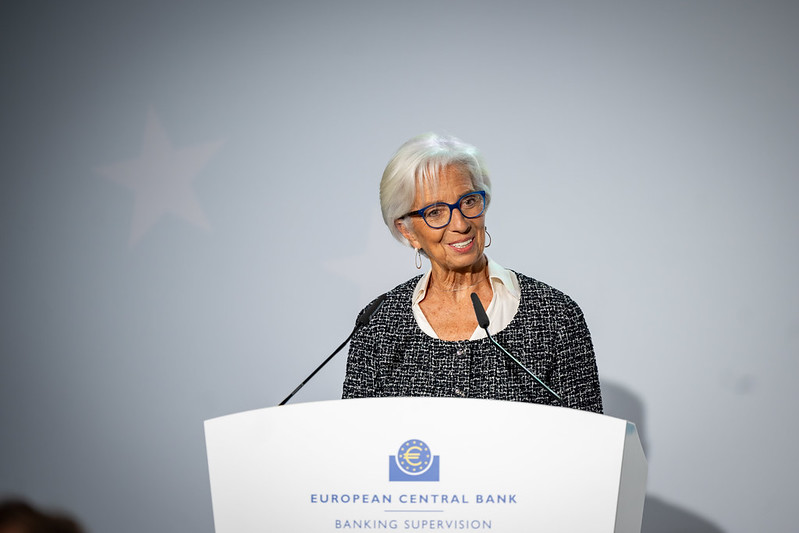ECB’s Lagarde: ‘Even Though We Are Not There Yet, We Are Close to Achieving Our Target’
16 December 2024

By David Barwick – VILNIUS (Econostream) - European Central Bank President Christine Lagarde on Monday said that the ECB had nearly reached its price-stability target and that confidence in achieving this goal had increased.
In a speech opening a conference in the Lithuanian capital, Lagarde said that ECB monetary policy had been subject to a ‘restrictive bias’ until recently. ‘At our last meeting, we dropped that bias’, she said.
‘Now, after a lengthy period of restrictive policy, our confidence that we are seeing a “timely” return to target has increased’, she said.
Current ECB monetary policy was still restrictive, she said. ‘But if the incoming data continue to confirm our baseline, the direction of travel is clear and we expect to lower interest rates further’, she said.
The now-dropped restrictive bias ‘no longer reflects the evolving macroeconomic landscape, our outlook for inflation or the balance of risks around it’, she said. ‘With the disinflation process well on track, and downside risks to growth, this bias in our communication is no longer warranted.’
The three criteria on which the ECB has been basing its reaction function ‘will be invaluable in the period ahead, even as the risks to inflation move from past shocks to future ones’, she said.
However, she said, the ECB ‘can change the weight we put on the different legs of our reaction function depending on the nature of the shocks we are facing.’
‘For example, if we face large geopolitical shocks that significantly increase uncertainty about the inflation projections, we will need to draw on other sources of data to make the risk assessment surrounding our baseline outlook more robust’, she elaborated.
The removal of the word ‘timely’ from the ECB’s monetary policy statement in favour of emphasising sustainability reflected the changed situation policymakers were now in, she said.
‘Even though we are not there yet, we are close to achieving our target’, she said. ‘So, we are no longer in a situation where we need to fix the policy horizon at the shortest possible transmission lag. We can return to a situation where the policy horizon can adjust depending on the nature, size and persistence of the shocks as needed.’
The uncertainty surrounding the ECB’s inflation projections had ‘decreased significantly’ to around the levels that prevailed before the pandemic, she said.
The projections of headline inflation were particularly accurate, she said. Those for core inflation were subject to systematic errors that were slower to dissipate, but this year had also regained historical levels, she said.
The ECB’s confidence was corroborated by inflation expectations, she said.
‘For some time, the signals from underlying inflation were still flagging the risk that inflation might not decline as quickly as indicated in our forecasts’, she said. ‘But recently this risk has declined and there is now greater alignment between our forecasts and underlying inflation.’
Only domestic inflation was persistently elevated, she said. This was an annual measure consisting almost entirely of services, so was still reflecting developments from early in the year, she said.
‘However, if we look at the PCCI for services, which strips out base effects, the measure currently stands at 2.5%’, she said. ‘Inflation momentum for services has also dropped steeply recently. These data suggest that there is scope for a downward adjustment in services inflation, and thereby domestic inflation, in the coming months.’
Wage growth substantiated the more positive outlook, she said. It was ‘on a downward trajectory and continues to be buffered by negative growth in unit profits, buffering the pass-through of rising wages to prices’, she said.
In fact, the ECB’s wage tracker indicated that growth would slow to around 3% next year, the level the ECB sees as in line with price stability, she said.
‘So, we will have to remain watchful until the downward adjustment in services inflation that we expect is confirmed by the data’, she said.
Risks to inflation had also changed and now stemmed more from possible future shocks than to the pass-through of past shocks, she said.
Lagarde warned that if the US were to become more protectionist, this would probably hurt euro area growth.
